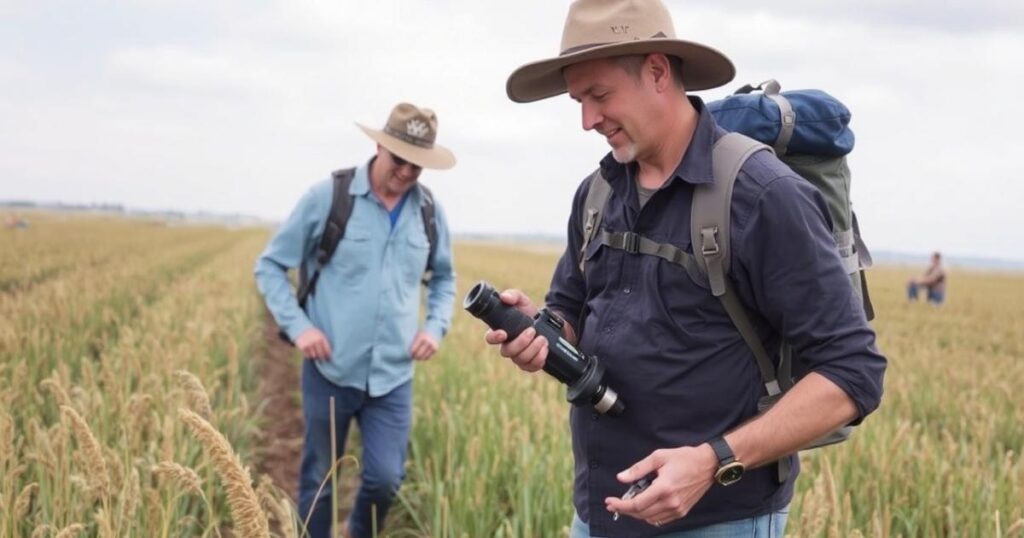Looking for Synonyms for “Hands-on Experience”? This guide is here to help. Many people want to say hands-on experience in a new way. You might be writing a resume, cover letter, or LinkedIn profile. Using a strong hands on experience synonym can make your writing stand out.
Whether you’re talking about a job, internship, or training, each Synonyms for “Hands-on Experience” fits real situations. You’ll find phrases like practical experience, applied learning, and more. Need another word for hands on experience? We’ve got plenty. These words help show your skills and what you’ve done. Use any hands on experience synonyms to sound more clear and confident. This list gives you better ways to say hands-on experience in everyday, human language.
Main Points
- Applied Learning: Shows how knowledge is turned into action through real tasks and challenges.
- Fieldwork Insights: Reflects what’s learned on-site, offering a deeper understanding of industry settings.
- Skill Development Workshops: Builds specific abilities through active practice and guided instruction.
- Job Shadowing: Offers a close look at daily roles by observing professionals in action.
- Immersive Engagement: Involves full participation, helping learners adapt and grow in real-time settings.
Practical Application
Hands-on experience is crucial for practical application. It allows learners to apply theoretical knowledge in real situations. This approach deepens understanding and reinforces learning. Through practical application, individuals can gain the confidence to perform tasks efficiently and effectively. It bridges the gap between classroom learning and real-world challenges.
In many fields, practical application is vital for skill development. For example, students studying engineering often use lab work to practice what they’ve learned in textbooks. The hands-on experience provides a clearer understanding of how things work in the real world. It’s this connection that makes learning meaningful and impactful.
Moreover, practical application fosters problem-solving abilities. As individuals engage with real-world tasks, they face challenges that require creative solutions. This hands-on learning experience builds critical thinking skills. It encourages individuals to think outside the box and apply their knowledge in innovative ways, ensuring their readiness for future opportunities.
Ultimately, practical application is about honing skills and gaining proficiency. It makes learning relevant and allows individuals to gain a sense of accomplishment. This direct experience prepares them for success, whether in the workplace or in further education. The more hands-on experience they gain, the more capable they become.
Real World Experience

Hands-on experience plays a major role in gaining real-world experience. Unlike theoretical learning, real-world experience involves tackling tasks that mirror what professionals face in their careers. By directly engaging in real situations, individuals gain a deeper understanding of their field. This experience is invaluable for career growth and development.
Real-world experience also allows individuals to gain practical knowledge. In fields like healthcare or technology, hands-on training is essential for applying techniques effectively. It’s one thing to learn about procedures, but practicing them in real environments helps solidify that knowledge. This connection is key to becoming proficient in any profession.
Furthermore, real-world experience enhances confidence and competence. Individuals who engage in hands-on tasks develop a strong sense of their abilities. As they face and overcome challenges, they build resilience. Real-world experience also prepares them for the demands and complexities of the workplace, giving them an edge in their careers.
Finally, real-world experience fosters personal and professional growth. It provides individuals with the tools they need to navigate the complexities of the job market. The exposure to different scenarios enables them to adapt quickly. This experience helps individuals grow, both in their careers and as problem-solvers in various situations.
Direct Involvement
Hands-on experience offers direct involvement in tasks, making learning more effective. Being directly involved allows individuals to fully immerse themselves in the work. This active participation leads to better retention and a stronger grasp of practical skills. Direct involvement in tasks helps develop the confidence needed for future challenges.
Direct involvement also encourages collaboration and teamwork. Many tasks require working alongside others, which helps individuals build interpersonal skills. In group settings, they learn how to communicate effectively and manage different perspectives. These collaborative experiences are valuable for both personal and professional growth in today’s work environments.
Moreover, direct involvement enables individuals to understand the complexity of tasks. By participating directly, they can identify potential challenges and find solutions. This hands-on approach provides a comprehensive learning experience that goes beyond theory. It sharpens problem-solving skills, ensuring individuals are prepared for real-world demands.
Through direct involvement, individuals can gain a clearer sense of career expectations. They see firsthand what skills are needed and what tasks are involved. This experience helps them refine their abilities and ensures they are well-prepared for the workplace. Direct involvement bridges the gap between education and career readiness.
Applied Knowledge
Hands-on experience is crucial when it comes to applied knowledge. By engaging directly in tasks, individuals can see how theoretical concepts translate into real-world situations. This process helps strengthen their understanding and allows them to make connections between what they’ve learned and how it’s used in practice. Applied knowledge is key for developing expertise.
Applied knowledge enhances problem-solving abilities. When individuals apply what they’ve learned, they develop the skills to address real-world challenges. This approach teaches them how to navigate complex scenarios and think critically. The more hands-on experience they gain, the better they become at finding effective solutions and making informed decisions.
Moreover, applied knowledge encourages continuous learning. As individuals encounter new challenges, they adapt and refine their understanding. They grow by learning from both their successes and mistakes. This ongoing process of applying knowledge ensures that individuals stay relevant in their field and are prepared for evolving job demands.
Ultimately, applied knowledge leads to greater competence and confidence. As individuals gain more hands-on experience, they become experts in their field. They are able to perform tasks with precision and skill. This level of proficiency is vital for career advancement, ensuring they are well-equipped for success in their chosen profession.
On-the-Job Training
On-the-job training offers valuable hands-on experience that prepares individuals for real-world tasks. By engaging directly in their roles, learners gain insight into day-to-day responsibilities. This experience is invaluable because it allows them to learn the skills they need while working in their specific industry. On-the-job training is practical and effective.
Through on-the-job training, individuals get to practice their skills in a supportive, real-world environment. They can ask questions, receive guidance, and receive feedback as they perform tasks. This immediate application helps them grasp concepts more effectively than classroom learning alone. It also provides a better understanding of workplace dynamics.
On-the-job training also fosters skill development. Employees refine their abilities as they navigate their daily tasks and encounter new challenges. They can apply theoretical knowledge in real-time, which boosts their confidence. As they gain more experience, they develop a higher level of proficiency, making them more valuable in their careers.
In addition, on-the-job training promotes professional growth. By learning in the workplace, individuals gain exposure to the company’s culture, workflows, and expectations. This experience helps them better align their goals with those of their employer. As a result, they are more likely to advance in their career and take on more complex tasks.
Field Experience

Field experience provides hands-on experience in real-world environments. This type of learning takes individuals out of the classroom and into the field, where they engage directly with their profession. Field experience helps them develop practical skills that are directly applicable to their future careers. It bridges the gap between theory and practice.
In many professions, field experience is essential for understanding job requirements. Whether it’s in education, healthcare, or engineering, experiencing the work firsthand is key. Field experience exposes individuals to real-world scenarios that they will encounter in their jobs. This exposure helps build confidence and prepares them for their professional journeys.
Additionally, field experience encourages personal and professional development. As individuals participate in real tasks, they gain a deeper understanding of their field. They also build essential soft skills such as communication, time management, and teamwork. These Synonyms for “Hands-on Experience” experiences prepare them for the challenges they will face in their careers and help them grow as professionals.
Field experience also provides valuable networking opportunities. Individuals working in the field can connect with industry professionals, mentors, and peers. These relationships can lead to future job opportunities and professional guidance. Field experience is a stepping stone that helps individuals build the skills and connections needed for career success.
Experiential Learning
Experiential learning is all about gaining knowledge through direct experience. Hands-on learning allows individuals to apply what they’ve learned in real-life situations. It goes beyond traditional classroom teaching by immersing learners in activities that mirror actual tasks they will face in their careers. This method helps reinforce concepts and enhances retention.
Through experiential learning, students develop problem-solving skills and critical thinking abilities. They engage with challenges that require them to think creatively and adapt quickly. By actively participating in the learning process, individuals not only gain practical knowledge but also build the confidence to handle complex tasks in the future. It’s a valuable tool for professional and personal growth.
Experiential learning encourages self-reflection. As learners actively engage in tasks, they assess their performance and identify areas for improvement. This reflective practice helps them refine their skills and grow in their careers. The experience also promotes a deeper understanding of theoretical knowledge, which helps individuals perform better in real-world scenarios.
Finally, experiential learning connects theory to practice. It helps learners see the relevance of what they are studying by applying it in real settings. This method of learning is essential for preparing individuals for the challenges they will face in their careers. The more they engage, the more competent and capable they become.
Related Guide:
13 Other Ways to Say “Hello Everyone” the synonym seeker
Active Participation
Active participation is an essential aspect of hands-on learning. It requires individuals to take an active role in their education by engaging directly with tasks. This approach encourages learners to be more involved in the process, making them more likely to retain information and develop practical skills. Active participation boosts engagement and learning outcomes.
Through active participation, individuals gain a sense of ownership over their learning experience. Instead of being passive observers, they become active contributors to the learning process. This increased engagement leads to a better understanding of concepts and allows for immediate application of knowledge in real-world situations. It’s a highly effective way to learn.
Active participation also promotes collaboration. Many tasks require individuals to work with others, which helps them develop communication and teamwork skills. By participating actively in group projects or hands-on tasks, learners build relationships and exchange ideas. This teamwork is valuable for both personal and professional growth, as it fosters shared learning experiences.
Furthermore, active participation enhances confidence. As individuals engage with tasks and solve problems, they develop a sense of competence. This confidence-building experience prepares them for future challenges, both in the workplace and in their personal lives. Active participation helps individuals build the skills necessary for success in their chosen fields.
Hands-On Training

Hands-on training is one of the most effective ways to develop practical skills. It involves learning by doing, which allows individuals to gain real-world experience. Unlike theoretical studies, hands-on training gives learners the chance to apply their knowledge directly in practical situations. This type of learning helps solidify concepts and prepares individuals for the demands of their careers.
Through hands-on training, individuals gain experience with real tools, equipment, and environments. This direct involvement builds competence and enhances their ability to perform tasks efficiently. Hands-on training is especially valuable in fields like healthcare, engineering, and technology, where practical skills are essential for success. It bridges the gap between classroom learning and job expectations.
Hands-on training also promotes problem-solving and critical thinking. As learners encounter challenges in the field, they must think quickly and adapt to new situations. This experience encourages creative thinking and helps individuals develop the skills needed to tackle complex problems. Hands-on training strengthens their ability to work under pressure and make informed decisions.
Moreover, hands-on training fosters professional growth. By engaging in real tasks, individuals gain the confidence to handle workplace responsibilities. They develop a deeper understanding of their roles and how they contribute to the overall success of the organization. This Synonyms for “Hands-on Experience” practical experience helps learners refine their abilities and prepare for career advancement.
Practical Proficiency
Practical proficiency is developed through consistent hands-on experience. It refers to the ability to perform tasks effectively and efficiently in real-world settings. Achieving practical proficiency involves gaining the necessary skills through direct involvement in activities that simulate real job requirements. This type of learning ensures that individuals are ready for the demands of their careers.
Through practical proficiency, individuals improve their task execution. They develop the competence needed to handle complex tasks with ease. This hands-on experience allows them to refine their skills and perform tasks at a high level. As they gain proficiency, they become more valuable to employers and can take on more responsibilities.
Practical proficiency also boosts confidence. As individuals become more skilled in their roles, they feel more capable of managing challenges. This Synonyms for “Hands-on Experience” sense of mastery helps them approach tasks with a positive mindset and tackle problems with confidence. Practical proficiency ensures that individuals can meet job expectations and contribute to the success of the organization.
FAQ’s
Why are Synonyms for “Hands-on Experience” important?
Using different synonyms for -on Experience helps explain the concept in various ways. It adds variety to writing and helps reach a wider audience.
Are there industry specific Synonyms for “Hands-on Experience”?
Definitely. In different fields, synonyms for -on Experience might include fieldwork, job shadowing, or skill-building workshops. Each highlights a form of direct learning.
Is real-world experience the same as Hands-on Experience?
Yes, real-world experience is one of the most accurate Synonyms for “Hands-on Experience”. It shows you’ve worked in actual situations, not just studied theory.
Are practical application and Hands-on Experience related?
Absolutely. Practical application is closely tied to Synonyms for “Hands-on Experience”. It means applying what you’ve learned in real tasks.
What’s another word for Hands-on Experience in professional growth?
You can use career development, skill enhancement, or workplace learning as Synonyms for “Hands-on Experience”. They show learning that supports professional success.
Conclusion
Using the right Synonyms for “Hands-on Experience” helps explain your learning journey better. Whether you choose hands-on experience synonym, practical application, or real world training, all show learning by doing. These Synonyms for “Hands-on Experience” are useful in education, jobs, and personal growth. They make your skills stand out clearly. There’s always another word for hands on experience that fits different fields.
Terms like fieldwork, applied knowledge, or job shadowing are common examples. Each synonym for hands on experience Synonyms for “Hands-on Experience” highlights real effort and direct action. These words show you’re not just trained, you’ve done the work. Adding a strong hands-on experience synonym in your resume or speech makes a big impact. It shows you’re confident and capable. Remember, every Synonyms for “Hands-on Experience” adds value to your journey. So, use them to share your real skills and achievements.

Ember Rose is a dedicated administrator with 4 years of experience in efficient operations management and team leadership. Skilled in streamlining workflows and enhancing productivity.

